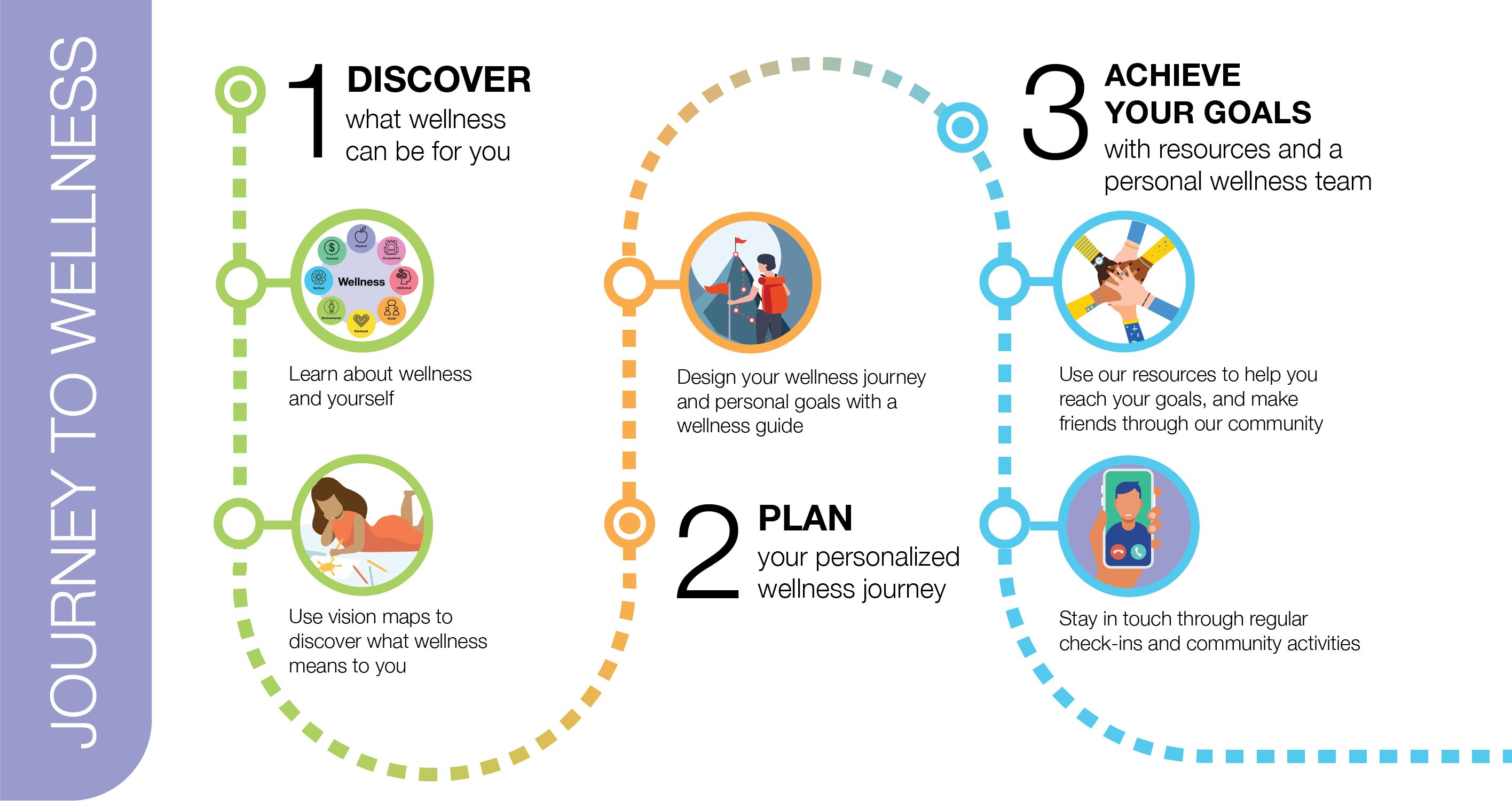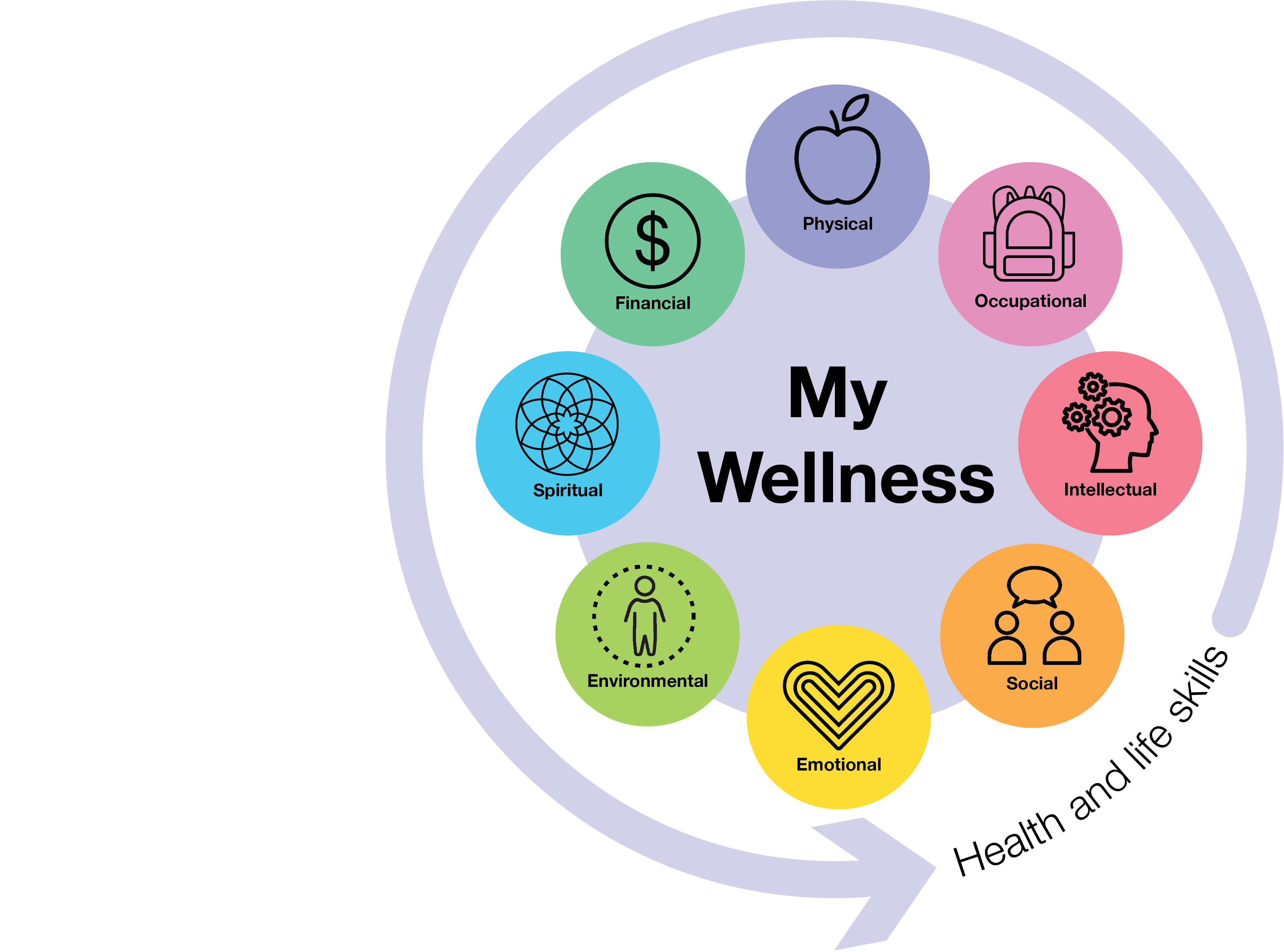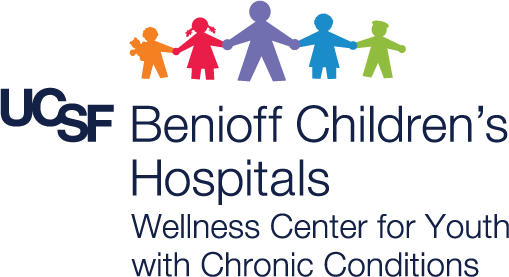
What is Wellness?
Wellness has several aspects. Wellness refers to a state of well-being today, that includes being comfortable, happy and at peace with yourself. Wellness is also about how we live our lives and the actions we can take to improve our well-being in the future. This booklet describes the different dimensions of wellness that contribute to well-being.
Why is Wellness important for you?
Growing up with a chronic illness can be hard for patients and their families. It’s complicated and the future is full of unknowns. By thinking about all aspects of your life, you can develop a plan that will help you to come closer to achieving your goals for overall well-being. Some areas of wellness described in this booklet may be more meaningful than others, depending on where you are at this moment in time, and that is fine. The Chronic Illness Center Intake Coordinator will help you find the wellness areas that you want to work on right now.

 Physical Wellness
Physical Wellness
Moving and doing what you want to do with ease.
Physical wellness is about getting regular exercise, eating healthy foods and getting enough sleep. It also includes how your medical condition and medicines affect your body today and later on. Physical wellness is important because a good diet, daily activity, and good sleep habits can make your body stronger and make you feel happier.
 Occupational Wellness
Occupational Wellness
Playing & working. Doing what you want to do in daily life.
Occupational wellness is about working on the skills you need every day. This includes tasks like getting dressed, taking a shower, eating, taking your medications and using the toilet. It also includes all the activities you do at school, like reading, working with other students, or getting ready for a test. Occupational wellness is important for feeling good about what you are able to do— whether that’s playing, being with your friends, or doing well in school.
 Intellectual Wellness
Intellectual Wellness
Curiosity and your drive to learn and think.
Intellectual wellness is about how you think, create, and problem-solve. It is also about practicing skills, like paying attention, remembering, and planning for the next day or week. It includes learning new things and keeping your mind active, in school and at home. Intellectual wellness is important because it helps you develop your own ideas, and it may play a role in the job or career that you choose.
 Social Wellness
Social Wellness
Connecting with people in your community.
Social wellness is being able to connect with other people. Social wellness is about sharing, listening, trusting and respecting others. It includes knowing you have a voice and can stand up for yourself and define boundaries with people around you. Positive connections with others are a source of joy, increase your self-esteem and can help you get through hard times.
 Emotional Wellness
Emotional Wellness
Balancing your feelings and reactions as they change.
Emotional wellness is about being able to know and express your feelings. It’s about being self-aware and accepting yourself on both good and bad days. It is important to pay attention to why your feelings happen so you can react to those feelings in a way that help you feel better. Emotional wellness is important because you can learn from experiences, and this can change how you look at yourself and your health every day.
 Environmental Wellness
Environmental Wellness
Finding safety in your surroundings and access to your needs.
Environmental wellness is feeling safe and comfortable in all the places in your life. This includes everything around you that might affect your health like your home, your school, your neighborhood, your health clinics, and the community in which you live. Finding or making a personal environment that is comfortable for you can help you feel calm, focus better, and relieve stress.
 Spiritual Wellness
Spiritual Wellness
Finding meaning and purpose in the world.
Spiritual wellness is being connected to your inner self and finding what means the most to you. It is about figuring out what gives you hope in life. It is about having your own values and beliefs that guide your actions every day. Spiritual wellness can give people joy and energize the mind and body.
 Financial Wellness
Financial Wellness
Spending and saving money for now and for the future.
Financial wellness is using the money that you have in a way that lets you take care of yourself. As you get older, you need to know how to keep track of your money, save money for emergencies, and know where to go for help with money problems. Financial wellness is important because the choices you make about money can affect your emotional, social and physical health.
Wellbox Toolkit for Patients & Families
